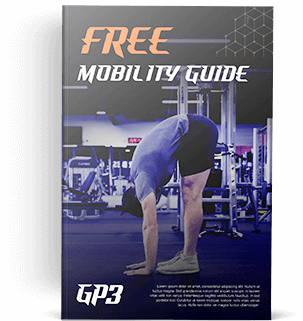Key Points:
1. When something challenges a strongly-held identity, it often feels like being faced with death.
2. No single part of your self-constructed identity is truly integral to you. But, it often feels that way.
3. When you understand that this isn’t actually true, life becomes much easier, happier, and more fun.
Estimated Reading Time: 7-15 minutes
I’ll go ahead and get this controversial statement out of the way. Holding a strong identity is cause for far more harm than good and should be avoided. Understanding this will save you a great deal of mental, emotional, and even existential distress. To be clear, I’m talking about an identity as or in anything. So, if you’ve ever said something like, “My job isn’t what I do, it’s who I am,” or “I’d be so lost without _____ that I wouldn’t be able to function,” then this post was written for you.
I want to be clear that this can be a challenging and sometimes painful topic, so I approach it with the utmost respect and a complete lack of judgment. To illustrate this, I’m going to share a few examples of how putting too much of my identity in one area, that is, strongly defining myself as something, has caused me and others a great deal of pain.
What happens when you’re not as good as you think?
One of my most salient identities for the majority of my life was “good soccer player.” In fact, from about age 7 to around age 25, this was probably my primary identity. This isn’t to say that I had an outlandishly unrealistic perception of my own abilities, or that I’d never been on a team where there were better players than me. That happened all the time. But, the general perception I enjoyed from teammates, coaches, and parents was that I was a valuable player that could help the team win and deserved his spot on the roster, usually as a starter.
This identity received a massive challenge after, ironically, achieving the biggest goal of my youth. That goal was playing Division-I soccer, and Marquette University offered the opportunity. After initial excitement gave way to Impostor Syndrome-fueled nerves, I found myself strongly questioning whether I was actually good enough to play for a D-I squad. Once the season started, reality set in.
While a lack of confidence certainly led me to play at a worse level than I was capable of, my ego found the truth to be pretty ugly. I was a below average player on this team. On good days, I was right in the middle of the pack, and on bad ones, I was at or near the bottom. Here I was, faced multiple times per day with an unfamiliar and highly uncomfortable situation. I was less ready and able to help the team than the coaches had expected when they brought me in, and I was nowhere near to getting playing time. Worse, I couldn’t shake the feeling that some members of the coaching staff and certain teammates thought I simply wasn’t good enough to be there.
This feeling, combined with the physical, mental, and emotional challenge of practices providing ample evidence that I wasn’t nearly as good as I was used to being perceived, was an unbearable state for my identity of “good soccer player.” The low point came when I realized that I envied the injured players, since they “got to” miss practice. If you’ve watched my story video or read the “You Are Not Your Thoughts” post, you’ll know that the very next training session after this thought popped into my head, I tore the arch of my left foot in a fluky, non-contact injury and had to miss the rest of the season.
A visceral consequence of a strong identity
I fully believe that this happened because my ego and primary identity simply couldn’t handle the situation, so “they” needed a way out that didn’t involve quitting. Giving up would have been worse, since it would have entailed admitting that I wasn’t a good enough player to be on the team. Also, “not a quitter” must have been a fairly important part of my identity as well.
Luckily, I learned a ton of lessons from this experience, and it helped my growth tremendously, not just as a player throughout the remainder of my college soccer career, but as a person in general. However, it’s just one example of the perils of an activity-related identity.
Other common identity traps
Here are some smaller examples. Growing up, I was always one of the “smart kids,” in my classes. I still remember crying during math class in 4th grade, when I just couldn’t figure out adding and subtracting fractions. I wasn’t supposed to struggle! I’m a “smart kid!” Instead of being okay with not picking something up easily on the first try, I broke down. I didn’t know how to ask for help or be patient while receiving help, because “smart kids don’t need help.”
Next, a few years ago I fell in love with rock climbing. After a few months of developing my skills, I can recall kicking my water bottle in frustration when I repeatedly failed an “easy” route that my ego perceived as below my status as an “intermediate” climber. Looking back on this, apparently I’d internalized the identity of “intermediate level climber.” Poor water bottle. You didn’t deserve it.
Returning to soccer, until the last couple of years or so, I would often find myself in personal battles, talking trash or fouling someone if they showed me up on the field. Someone else getting the better of me was a challenge to the “good soccer player” identity, and would often lead me to respond with anger and hostility.
Or, if somebody was clearly better than me in an area or at an activity I valued, I’d often explain it away using rationalizations like, “Yes but they’re not very good at such and such, and I’m good at both, which is more impressive.” Or, “Yes but they had this unfair advantage (money, genetics, better coaching, whatever) and if I’d had that, I’d be even better than they are!”
The common thread here is that absolutely none of this is productive or healthy. It caused distress to me, people I cared about, and people I didn’t even know. And yet, despite these negative consequences, we all fall into this trap way more often than we realize.
The consequences of unconscious identity preservation
We put our identity in our looks, our jobs, our skills, our partners, our political party, and even more deeply entrenched concepts like being of a certain race, religion, or gender, or even “being a good person.”
What I want to make clear is that it is 100%, unquestionably fine to participate and engage with any of these concepts and activities. What’s perilous is to believe that any of them make up an integral, irreplaceable part of who you are. You see, whatever your identity is, it’s going to face some steep challenges.
There’s always going to be someone more attractive than you, more skilled than you, or more…something than your ego would like. And that’s fine! The problem is, when this pesky reality challenges an identity that you feel is unquestionably who you are, admitting that maybe you’re not “that” almost feels like death. So, you’re more likely to egoically react with anger, despair, or even violence.
To that end, if you’ve ever looked back on past behavior of yours and wondered, embarrassed, “Why the heck did I act that way?” chances are, something challenged a deeply-held identity and you reacted in a self-preserving way that would have made more sense if you were actually faced with death.
The more deeply-entrenched the identity, the harder this can be
This unconscious preservation even happens for the identities many of us often take for granted, like our gender. Statements like “Be a man,” and “A real woman doesn’t ____,” have caused untold amounts of distress and negativity. In fact, I think it’s highly likely that unknowingly putting too much of one’s identity in one’s gender plays a role in a great deal of the discrimination faced by transgender and homosexual individuals. The subconscious logic may go something like this, “I’m a ‘real’ man/woman! This other person’s behavior and appearance, or whatever else, are so different from mine that they can’t possibly be a man/woman!” When one’s identity is held this strongly, even expanding the definition of what it means to be a man or woman can feel threatening, so people lash out.
Race isn’t immune either. Years ago, I remember a whole bunch of pointless arguing about whether Barrack Obama was actually “black enough.” Regardless of your political beliefs (another identity trap) I can’t think of a bigger waste of time. I also remember reading a story about a mixed-race tennis player from France who struggled for acceptance because the black children considered him white, and the white children considered him black. What’s lost in this story is that apparently, the children he interacted with subconsciously considered race an important-enough part of their identity that they didn’t want to associate with someone who they considered to be of a different race.
Finally, let’s examine the issue of “being a good person.” Nearly everyone believes this about themselves. Even historical figures who have committed unspeakable atrocities resulting in the deaths of millions usually thought they were doing so for morally justifiable reasons. “Being a good person” is thus a perilous identity because everyone does “bad” things sometimes, whether intentional or not. Regardless, needing to protect the identity of, “I’m a good person” can lead to lying, claiming the person you harmed deserved whatever happened, or even denying their humanity.
How to use this knowledge practically
The truth of the matter is, nothing about you is completely integral to you. There is nothing that you can lose or gain that would change the simple fact that you are you. That’s right, nothing. Nothing on or about your body, nothing you know or don’t know, nothing you can or can’t do, nothing you do or don’t have. Nothing. It can all be stripped away.
When you know this, you can participate in anything and everything much more safely and enjoyably. Failure bothers you less deeply, which has the bonus of making you more likely to try to improve at something rather than quit. You’re no longer afraid to ask for help, “look stupid,” or be incompetent at an activity before you’re great at it. On the flip side, success is celebrated joyfully and enjoyed on its own merits, not used to prove that you’re better than someone or inflate your ego. To sum it up, life is a lot happier, easier, and more fun when you’re not fighting to protect various identities.
So, in light of all this, you might be asking yourself, “If I’m not any of those things, then who am I?” Well, (wink) now we’ve finally arrived at the question countless philosophers and spiritual practitioners have been asking for millennia. We’ll explore this more in a future post, but for now, spend some examining this question yourself. It can actually be pretty fun.
To give you a gentle nudge in the right direction, here’s a quote from Rupert Spira, one of my favorite authors/speakers on all things metaphysical:
“Security and happiness cannot be found in anything that comes and goes. Find whatever it is in your experience that doesn’t appear, move, change, or disappear, and invest your identity, security, and happiness in that alone.”
Before you go, I’d love to hear from you! Can you think of a time a deeply-held identity caused pain for you or someone else? If you’re comfortable, email me the story. I promise not to share it without your permission.

